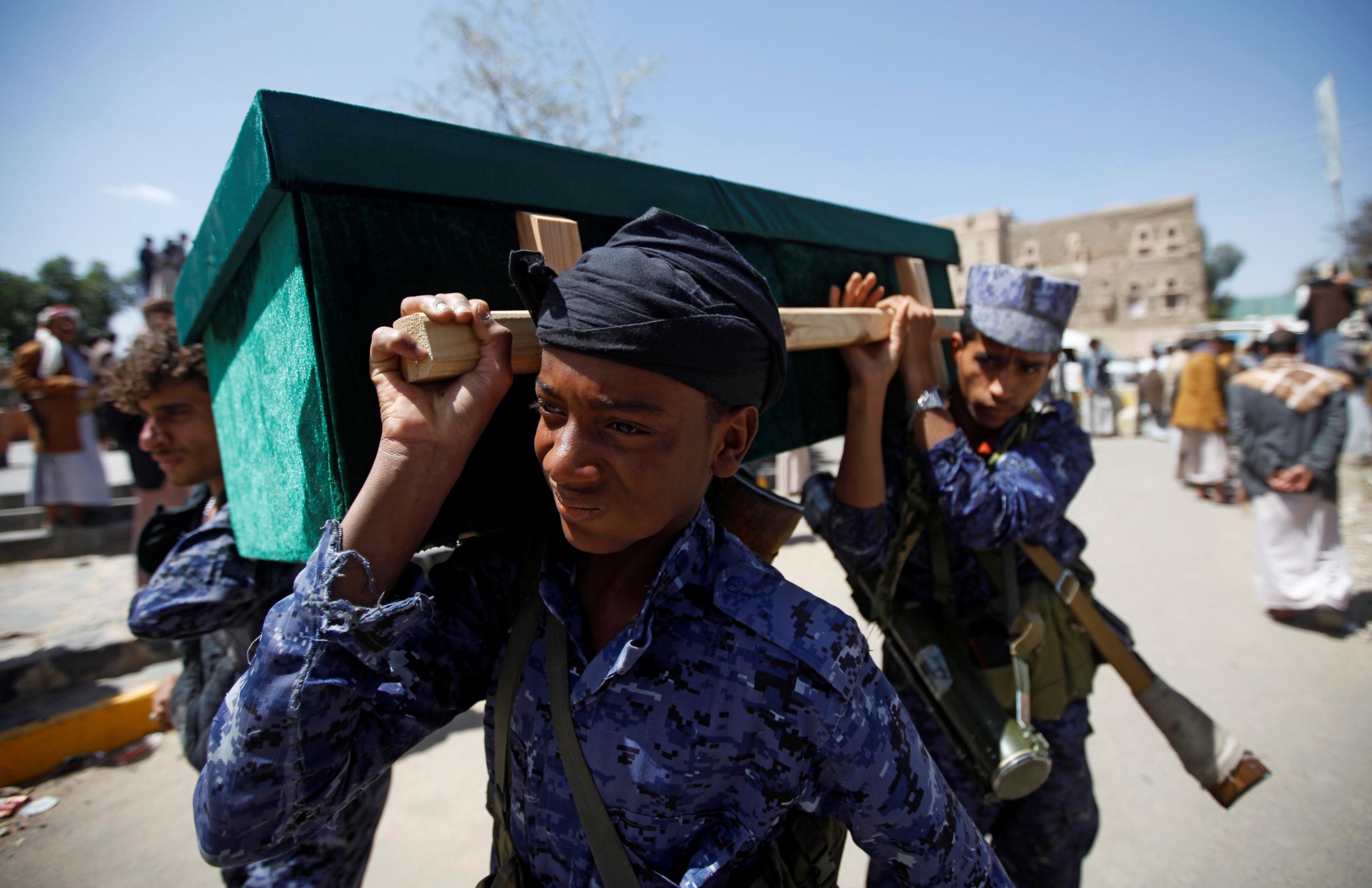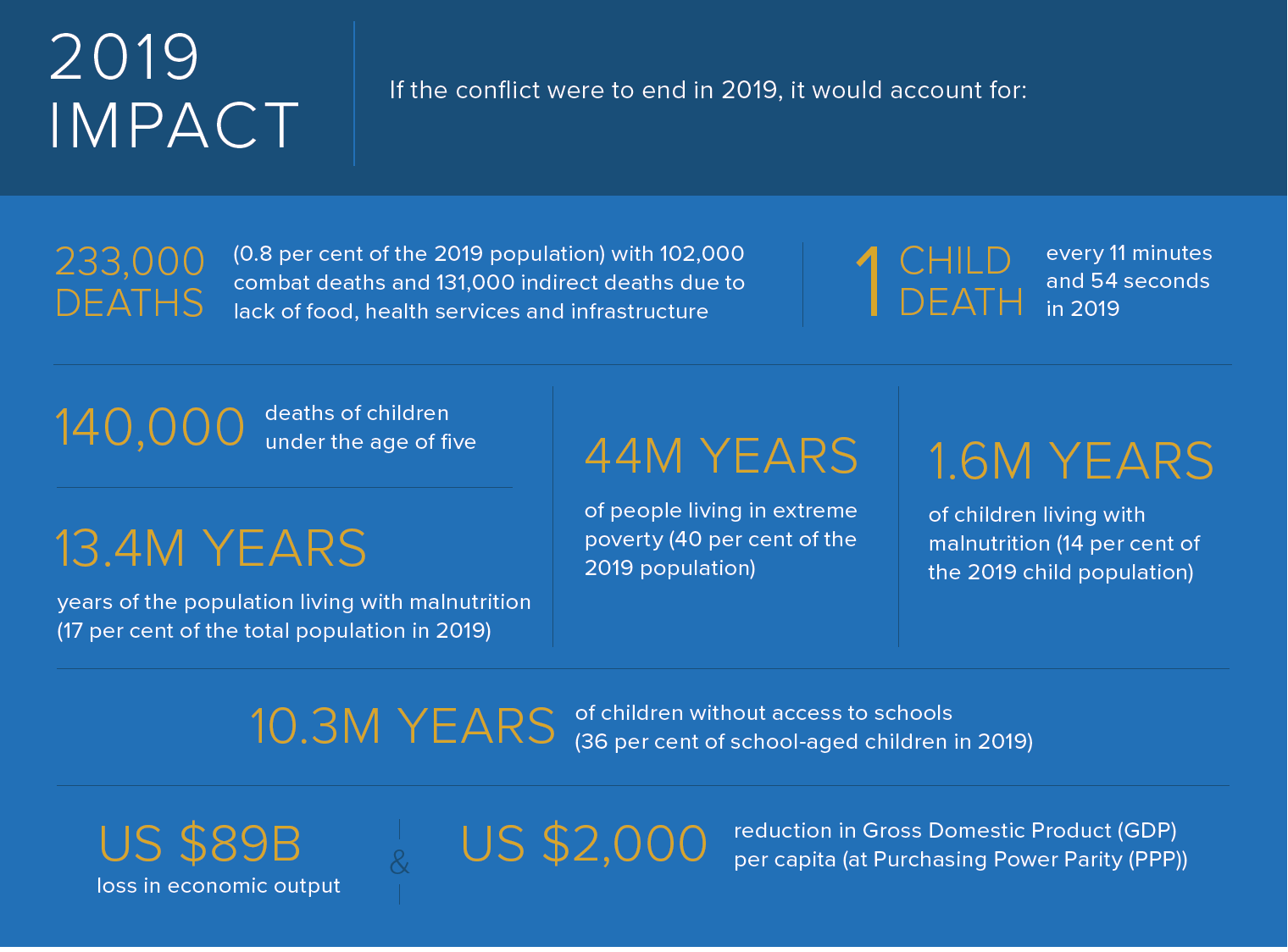Yemen war dead could hit 233,000 by 2020 in what UN calls ‘humanity’s greatest preventable disaster’
Nearly a quarter of a million people will have died in the conflict in Yemen if fighting continues

Your support helps us to tell the story
From reproductive rights to climate change to Big Tech, The Independent is on the ground when the story is developing. Whether it's investigating the financials of Elon Musk's pro-Trump PAC or producing our latest documentary, 'The A Word', which shines a light on the American women fighting for reproductive rights, we know how important it is to parse out the facts from the messaging.
At such a critical moment in US history, we need reporters on the ground. Your donation allows us to keep sending journalists to speak to both sides of the story.
The Independent is trusted by Americans across the entire political spectrum. And unlike many other quality news outlets, we choose not to lock Americans out of our reporting and analysis with paywalls. We believe quality journalism should be available to everyone, paid for by those who can afford it.
Your support makes all the difference.The death toll from a devastating war in Yemen could soar to nearly a quarter of a million by the end of 2019, the United Nations (UN) has warned, calling the conflict one of the “greatest preventable disasters facing humanity”.
In a 60-page report, the UN Development Programme (UNDP) said the fighting between the Gulf-backed Yemen government and the Houthi rebels could also set the country back a generation in terms of development.
It warned that if a proper ceasefire is not brokered by the end of the year, the total number of dead could rise to 233,000, with 60 per cent of the deceased being children under the age of five.
The UN’s projected count includes 102,000 killed in combat and 131,000 who will die due to a lack of food, health services and infrastructure in the war.
It represents a significant increase on the latest death toll, compiled by global mapping group the Armed Conflict Location and Event Data Project (Acled), which said last week 70,000 people have died in the war since 2016.
British parliamentarians, meanwhile, urged the UK to halt weapons sales to a Saudi-led coalition fighting in the country, fearing it was contributing to the humanitarian crisis and numbers of deaths.
“The current conflict in Yemen is one of the greatest preventable disasters facing humanity,” the damning UNDP report said.
“If that war continues it will continue to disproportionately kill children, mostly due to a lack of access to food, health services and infrastructure. It is already placed among some of the worst conflicts since the end of the Cold War.”
Yemen has been ripped apart by a devastating conflict since the Iran-backed Houthis took control of the country in late 2014, ousting recognised President Abdrabbuh Mansour Hadi.
Saudi Arabia and its Gulf partners, including the UAE, launched a bombing campaign in March 2015 to reinstate their ally Hadi.
Four years on there is little hope to an end to the fighting, which has sparked what the UN has previously termed the world’s worst humanitarian crisis.
Over 24 million people, or 80 per cent of the country, now rely on humanitarian aid, and more than 13 million are at risk of starvation, according to the UN.
Peace negotiations are currently centred on a tense UN-brokered truce in the port city of Hodeidah, which is the main entry point for humanitarian aid and commercial imports.
The UN is trying to get both sides to pull troops out of the flashpoint city but the process has stalled, with both sides blaming each other for lack of progress. Fighting still rages in the southwestern province of Taiz.
UK foreign secretary Jeremy Hunt hosted Saudi and UAE ministers in London last week in a last-ditch attempt to hammer out peace terms.
Ahead of the meeting he had highlighted the plight of children in Yemen, saying on Twitter that more than 100 children die a day from extreme hunger.
However, the UK government has faced mounting criticism for its continued support for Saudi Arabia, which has spearheaded the devastating bombing campaign in Yemen.
Since the coalition began its aerial campaign in Yemen in March 2015, the UK has licensed at least £4.7 billion worth of weapons sales to Riyadh.
Lloyd Russell-Moyle, Labour MP for Brighton Kempton, said the UK must immediately cease weapons and personnel support to the kingdom because of the mounting death toll highlighted in the UN report.
“UK bombs routinely targeting civilian targets in Yemen are clearly not enough to shame the government into obeying UK arms export control law and suspending sales to Saudi Arabia,” he told The Independent.
“I have no faith that the government will stop unless the Court of Appeal compels them to do so,” he added.
The leaders of five opposition parties, including Labour, have called on the UK government to halt arms sales to Saudi Arabia.

The UN report said that the conflict was morphing into a “war on children”, with one child dying every 12 minutes in the country.
By 2022 more than 330,000 children could be dead, accounting for nearly 70 per cent of the total war death toll, it predicted.
It also raised concerns about potential famine in the country. Right now 13.4 million people are at risk of starvation in Yemen, with the figure set to rise if the conflict drags on.
Join our commenting forum
Join thought-provoking conversations, follow other Independent readers and see their replies
Comments